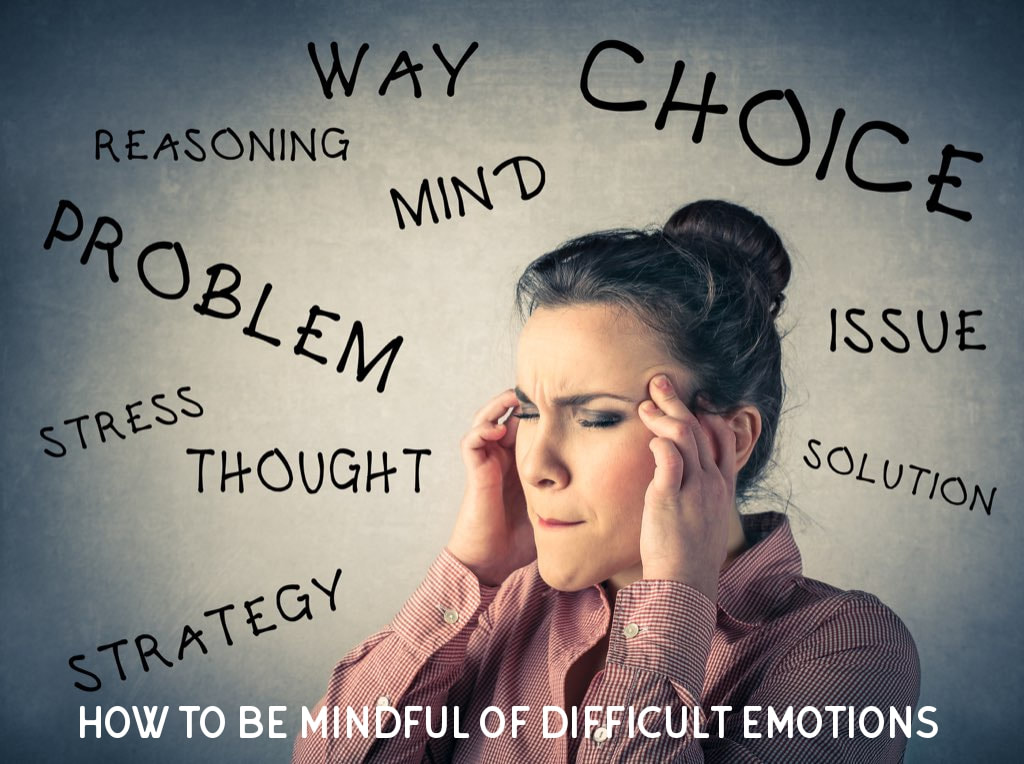Our conditioned mind tends to be unstable and reactive. Conditioned to our habitual ways of perceiving reality. The intention is to free the mind from the habits of conditioning in order to perceive reality clearly and realize our True Nature. Our True Nature (the unconditioned mind) is vast, luminous, open, stable, kind, loving, compassionate, wise, joyful with an inherent basic goodness and intelligence. Mindfulness techniques allow us more access to who we really are.
Mindfulness focuses on the present moment...the here and now, not the past or the future. This is the only moment where we're actually alive, the only moment where we can choose, it's the power moment. Our thoughts abduct us from the present moment. We tend to ruminate and fantasize or anticipate and set expectations. Our habit is to lay over the top of the present moment our past experience.
The key is to create an open mind. Judging closes the mind, curiosity opens it. The difficult emotion is the obstacle and mindfulness is the path. The way through it is to go into it. There are 6 steps for working mindfully with our difficult emotions:
- Breathing: As soon as you realize that you're upset, pause and breathe mindfully for several breaths This brings you into the present moment, helps you ground and gather your wits about you.
- Recognizing: Be aware of the emotions as it's happening and remember it's a temporary mind state passing through you. Softly note it..."Here's anger" or "Here's feeling upset."
- Accepting: Instead of judging yourself for the feeling, open to it and welcome it. Something important is going on with you right now. Through this acceptance we are able to move through with more ease.
- Investigating: Bring curiosity and interest to the table. Ask yourself, "How am I actually experiencing this right now? What am I thinking? Imagining? What's the story my mind's created?" Next go under the storyline to the sensations in your body. Ask, "Where do I feel this in my body? What are the sensations actually like? Are there other emotions here?"
- Not Identifying: This difficult emotion is not a reflection of who you are. It's unpleasant "weather", created by certain conditions coming together, so it's wise not to take it personally. By softly noting it as, "Here's fear", rather than "I'm afraid", it's possible to remain open and stable with it while it's temporarily here. We habitually identify with our experience: "This is me! This is who I am!" And we suffer.
- Searching: Next inquire more deeply into the root cause. Gently ask questions like, "When have I felt this before? How old do I feel right now as I'm with this? What is this really about for me? What belief is operating here? And, does this belief serve me now?" Open to whatever occurs with acceptance and kindness. When you sense that you understand this more, ask, "Given this, what's the wisest and kindest way to respond to myself right now?"
We are not trying to change it, we are just trying to relate to it. Changing it is fighting against it, resisting it. We are letting it be and companioning it, giving it spaciousness and remembering impermanence. Discovering the concept of impermanence was a game changer for me. Most everything in life is impermanent, things shift and change regularly. Just knowing this and flowing with it makes a huge difference.
A shortened version of the above technique is called the Drop In Mindfulness Technique.
Drop In Mindfulness Technique...ask yourself 3 core questions:
- What am I actually experiencing right now? (thinking, feeling, sensations)
- How am I relating to that? (curious and accepting or resisting and judging/caught in it/stuck)
- Given this, what's a wise and kind way to respond to myself right now? What do I need in this moment?
How to practice this on a daily basis:
- Drop In as many times as you can throughout the day...breathe 3 breaths, ask the 3 core questions, and follow your advice.
- Unitask...concentrate on one task at a time versus multitasking.
- When you feel stressed, use the Drop In technique.
Mindfulness develops vital mental muscles and it's a key component to navigating difficult emotions. Mindfulness can teach us that we don't need to be afraid of our thoughts, that they are not me, that I have a choice, but it takes regular practice.
This type of meditation is called Insight Meditation. It was taken from materials in a class I took taught by Mare Chapman, M.A. at University of Wisconsin-Madison.

 RSS Feed
RSS Feed
